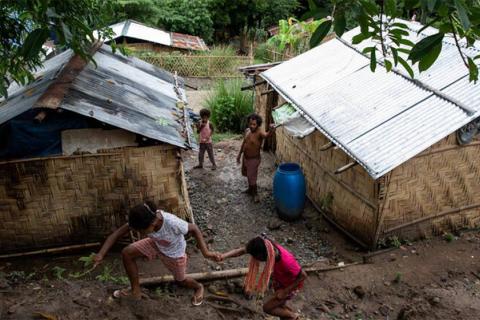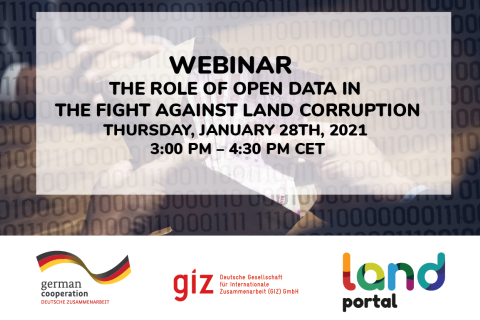Neil Sorensen joined the Land Portal as its Communications Specialist in October 2015. He has extensive experience leading communications for international organizations and developing relationships with civil society, donors, intergovernmental agencies, the media and the private sector. Previously, Neil worked for the International Fund for Agriculture Development (IFAD) as a Governing Bodies Officer and Strategic Adviser to the Secretary of IFAD. He has also led communications for three international organizations, including the International Land Coalition, the International Federation of Agricultural Producers (IFAP) and the International Federation of Organic Agriculture Movements (IFOAM). He holds a Master’s degree in Global Diplomacy from the University of London School of Oriental and African Studies (SOAS) as well as a Bachelor’s degree with a double major in German and Sociology from St. Cloud State University.
Details
Location
Contributions
Displaying 391 - 400 of 1145Second indigenous activist killed in Honduras in past week
Adan Medina, a vocal activist in disputes with loggers and landowners, was shot and killed by a group of men
An indigenous leader and activist was killed in northern Honduras, officials said on Wednesday, the second such murder in the Central American country in less than a week.
Adan Medina, 46, of the Tolupan indigenous community, was shot and killed by a group of men on Sunday after returning from work in the town of Candelaria, according to Noe Rodriguez, the president of a local indigenous federation.
Under cover of COVID, new laws in Asia threaten environmental and social protections
Hit hard by the pandemic, Asia's indigenous and local communities face fresh government-led efforts to exploit their land and resources
In addition to its devastating toll on public health, COVID-19 has exacerbated global food insecurity and economic crises. These costs have been particularly acute for Indigenous Peoples and local communities on customarily governed territories and lands.
Call for Applications: Two PhD positions on commons at the Institute for Collective Action, Erasmus University Rotterdam – apply by January 15, 2021
The Institute for Collective Action of the Erasmus University Rotterdam is offering two PhD positions to candidates who would like to pursue their PhD studies in the area of collective action. The focus will be on an in-depth micro-analysis of internal functioning of two different types of “institutions for collective action” (ICA).
About the positions
The relationship between size and heterogeneity of both members and resources and their impact on the institutional design of ICA will be studied for:
STAARS Fellowship Program: 2021 Call for Research Proposals
The Structural Transformation of African Agriculture and Rural Spaces (STAARS) fellowship program, a multi-institution collaboration managed by Cornell University with support from the CGIAR Research Program on Policies, Institutions, and Markets (PIM), announces its annual call for research proposals.
The Role of Open Data in the Fight against Land Corruption
Improving tenure security for pastoralists in East Africa
PIM support to work from ILRI and partners contributed to adoption of a woreda (district) participatory land use planning approach in Ethiopia and to expansion of the joint village land use planning approach in Tanzania, resulting in more secure tenure rights for pastoralists in rangeland areas.
A Journey into Land Issues in China
The Land Portal Foundation’s launches the China Country Portfolio - a knowledge piece with a comprehensive understanding of the country’s land issues. Hit by COVID-19 a year ago, China is ever more pressed to adapt land usage rights to protect food sovereignty while also stimulating investment.
China’s Belt and Road Initiative
January 6, 2021
7:00 pm
Rutland Free Library
Press Release: Study Finds Upward Trend of Land Inequality in Asia Driven By Large-Scale Land Acquisitions
In a new study, researchers say that land inequality is rising in most countries. Worse, new measures and analysis proves that land inequality is significantly higher than previously recorded, with data reporting a 41 percent increase compared to traditional census data.











